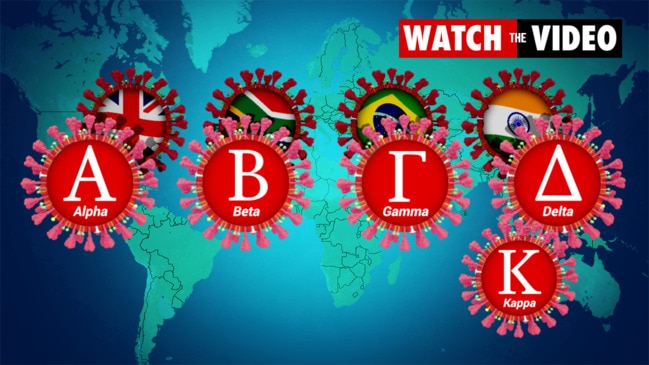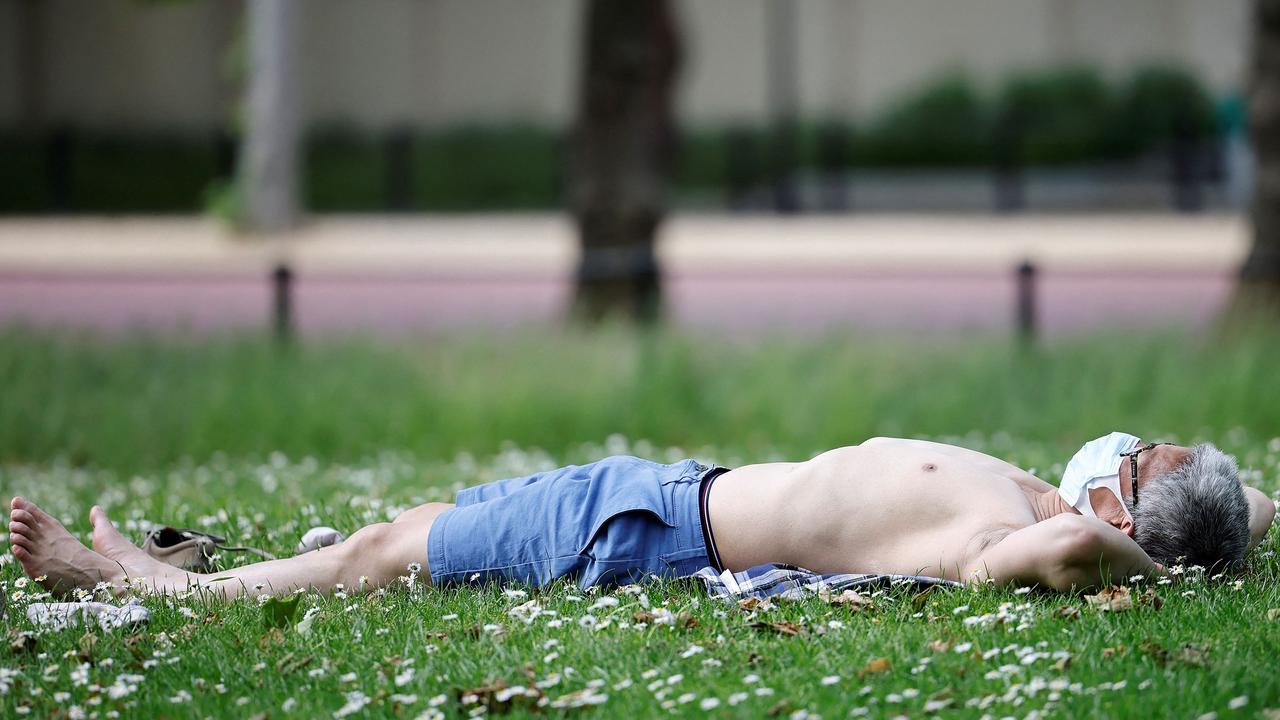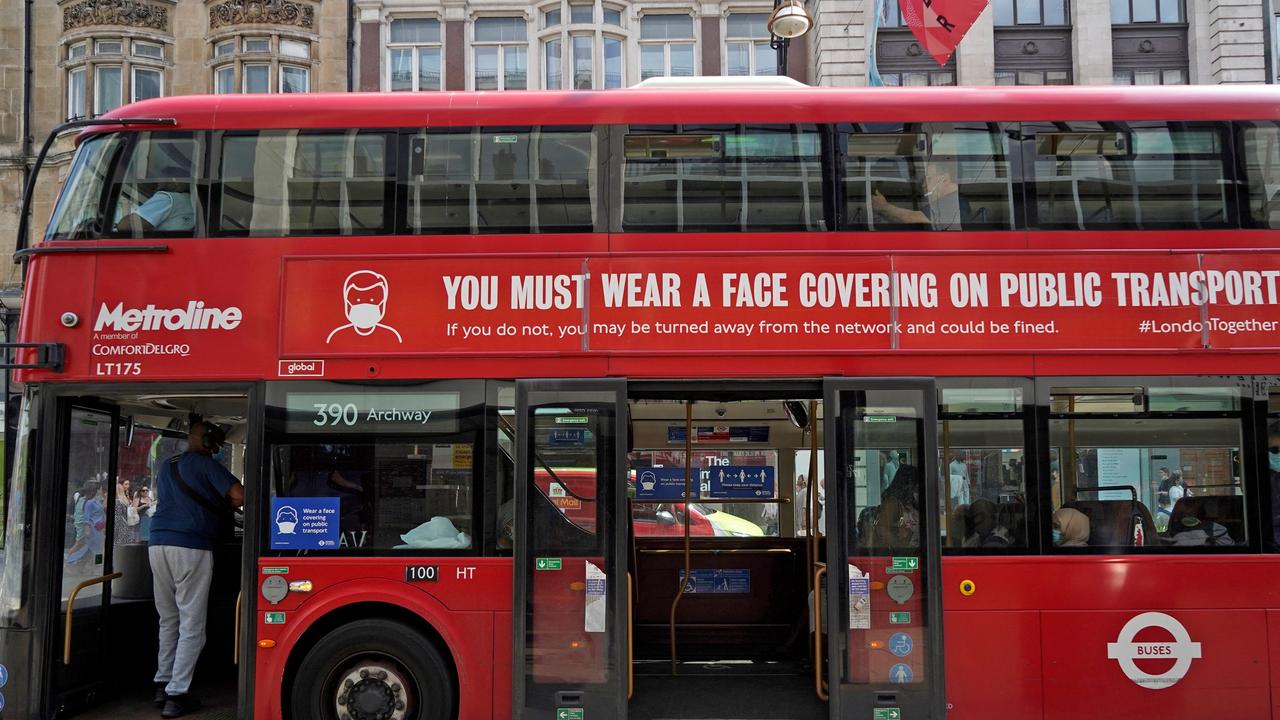Why the Delta variant is terrifying coronavirus experts
More than a year-and-a-half since Covid-19 emerged in China, the new Delta variant is threatening to derail long-awaited reopening plans. And experts are terrified.

It spreads more easily, it’s more severe, and is more resistant to vaccines.
More than a year-and-a-half since Covid-19 emerged in China – sparking a global pandemic that has crippled economies, killed millions and forced international borders closed – there are growing fears that the Indian strain of the virus could derail long-awaited re-openings and plunge the world back into crisis.
The so-called Delta variant, which was first detected in India last October, has now spread to at least 62 countries including Australia and is behind a growing number of outbreaks across Asia and Africa, the World Health Organisation said this week.
In the UK, the Delta variant – given the new name by the WHO to simplify its scientific name, B.1.617.2, and to avoid stigmatising countries that detect new strains – now accounts for 90 per cent of new cases, which have begun to surge again despite a successful vaccination campaign.
On Friday, Britain recorded 8125 new cases nationwide, the highest daily number in four months and a 58 per cent weekly increase, with 158 people hospitalised.
The disturbing figures are forcing the government to consider delaying the final easing of restrictions on June 21 by either two or four weeks, The Times reported.
The goal is to give people more time to get their second shot. Around 75 per cent of the UK has been vaccinated, but only 40 per cent have had two doses.

Figures published this week showed the two thirds of the 383 hospitalisations from the Delta variant were people who had not been vaccinated, while there had been 42 hospitalisations and 12 deaths in people who had received both doses of the vaccine.
“This is about giving people certainty,” a government source told The Times. “The worst-case scenario is that we ease restrictions and then have to implement them again. This has to be a one-way ticket.”
British Prime Minister Boris Johnson is expected to wait until Sunday to look at the figures and make a final decision to be announced, according to the paper, but a delay is widely expected.
The Sun newspaper reported late on Friday that Mr Johnson was set to delay “freedom day” to July 19.
That came after analysis by Public Health England showed infections had risen to 42,323 from 12,431 last week, a jump of 240 per cent.
Mr Johnson told world leaders at the G7 summit on Friday that “we need to make sure we don’t repeat some of the errors that we have made in the course of the last 18 months”.
ðŸ“Delta variant #B16172:
— Eric Feigl-Ding (@DrEricDing) June 4, 2021
50-70% more transmissible
2.7x more likely to be hospitalized than #B117
“Many people could end up in hospital, 🇬🇧 NHS could be thrown into another surge.â€
Says @globalhlthtwit of @IndependentSage. #COVID19#DeltaVariantpic.twitter.com/stca6XFKTD
Anthony Costello, a British paediatrician and member of the Independent SAGE advisory group, told the BBC earlier this month that June 21 was too early to ease restrictions.
He noted that the Delta variant was thought to be 50 to 70 per cent more transmissible, had a 2.7 times higher likelihood of hospitalisation, and showed evidence of “vaccine escape”.
“If you have had one dose of the vaccine, you are only 34 per cent protected,” Dr Costello said.
“If you’ve had two doses, you’re only about two-thirds protected. That means there are millions and millions of people who could be infected by this virus. Now, many of them will be younger, and death rates should be much, much lower. But many people could end up in hospital, the NHS could be thrown into another surge – we just don’t know.”

In addition to the higher transmissibility, there are anecdotal reports from India that the Delta variant is more severe in children than the so-called Alpha strain.
And doctors treating patients in India have reported disturbing new symptoms, including gangrene and hearing loss.
A YouGov poll published by The Times on Saturday found the majority of British voters supported pushing back the June 21 reopening.
The poll found 53 per cent said restrictions should remain beyond June 21, with 34 per cent saying they should end.
Prime Minister Scott Morrison, prior to flying out to the G7 talks in the UK earlier this week, warned that the worrying spread of the Delta variant there meant Australia’s borders could remain shut with no end in sight.
“They have vaccination rates in the 70s and with their older population even higher than that, and they have 4000 cases a day, daily – 4000 cases a day,” Mr Morrison told Perth radio station 6PR.
Host Liam Bartlett interrupted to note “they have borders open to a lot more countries than we do”.
“Exactly, so if you’re suggesting that we should be aiming for a position where we can have 4000 cases a day, then no, I don’t think Australians would agree with you,” the PM said.
“I’ll tell you what’s real, I’ll tell you what’s real. Vaccination rates in the UK of over 70 per cent and over 4000 cases a day. Vaccination rates where I’m going today in Singapore are over 40 per cent, and they are in lockdown. So what we’ve always learnt from this pandemic is there are no absolutes. The virus writes the rules.”




